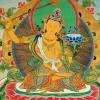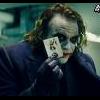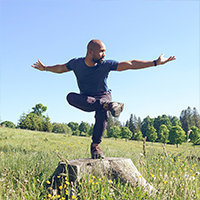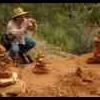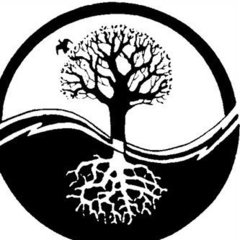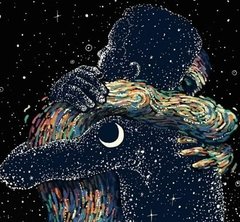Search the Community
Showing results for 'Dream'.
Found 7,590 results
-
I appreciate the recommendations, Karl. I do know those bands. The latest prog-rock band I could listen to was Marillion (but stopped after Fish left, which was 1988 I think? But Steve Hogarth has a fine voice too). The appeal prog-rock once had isn't there anymore for me, and the heavier metal side of things I've never been able to get into. I once had a friend who was into Tool, Porcupine Tree, and Dream Theatre and I just failed to develop any appreciation for it -- just not my aesthetic I suppose. But that's just me -- it's not to deny there's no talent there to be sure! But I still have my fingers in a lot of different musical pies, circling back to a lot of 60s and 70s music I didn't explore as much, British folk and folk-rock, punk, lots of lesser known music that I had little exposure to as a teenager. My interest in rock music almost completely died 20 years ago until hearing Velvet Underground and Joy Division miraculously revived it.
-

Seeing, Recognising & Maintaining One's Enlightening Potential
manitou replied to C T's topic in Buddhist Textual Studies
I'm finding an interesting bit of growth in the area of peace with the onset of guru yoga, as spoken of in Steve's teacher's book on Dream Yoga. (Tenzin Wangyal Rinpoche - 'The Tibetan Yogas of Dream and Sleep'). i had never had exposure to Guru Yoga until reading that book. But not too long ago, I did read the Flower Adornment Sutra, and found a boddhisatva by the name of Flower Glow, whom I greatly identified with for some reason. I just noted that I had some of his/her qualities on a good day, I felt the connection - which may explain why I spent so long struggling to get through that Sutra. Flower Glow didn't come along until close to the end. Comes now Flower Glow. But not until the end. But I have internalized that entity, and I am allowing him to live within me. When I am in Awareness during the day and not caught up in the maya of a situation, I feel his presence, I know what he looks like. He has a man-bun, he wears no shirt, he has drawstring pants and no shoes. He is so very clear to me. And he shows up in dreams as a white dragonfly, leading me through a garden or some place. I wasn't much of a dreamer at all until I cut back on the chemicals, and now they're coming fast and furious. I bring this up because I can see what a useful tool Guru Yoga can be. Very powerful. And during this process of chemical elimination from my body, it is making all the difference in the world. I highly recommend it, BES - a real shortcut, it seems - if there are days when the anxiety gets a little overbearing. -
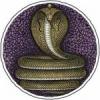
Seeing, Recognising & Maintaining One's Enlightening Potential
blue eyed snake replied to C T's topic in Buddhist Textual Studies
well, me thinks, most people never even dream of doing what you're doing and being were you are. Yes, but the being holy thing is pretty obvious. it sits much deeper, for instance, I feel that i'm doing a good job by tackling my fears and anger. It is a good job, but the thinking about it in this terms, thats is the little Bes, seeking confirmation from the outside, from my mom. Or,( i'm picking up my meditating again. ) " i'm a bad girl because i didn't meditate today" or a good girl because I did. It's all rubbish really. remember a time in the dojo when teacher asked us what gave us the most stress, answers came like, whether I'll keep my job, or illness etc. But when I let the question sink in I answered, the most stress i get from my own thoughts, theyr'e like a horde of hungry flies. and it's only now, some years later, that I 'get' what i told him then yes, even though I read little, when you've grown a bit, you get the message a little better me too -
This: all in this fleeting world: A star at dawn, a bubble in a stream; A flash of lightning in a summer cloud, A flickering lamp, a phantom, and a dream. Is Buddha's Dharma, maybe you are like the Enkyoji Nichiren Buddhist Temple, that say you can " slander " Buddha's Dharma.
-
Part 6 the senses as necessarily valid. Metaphysics from the objectivist viewpoint is highly delimited. It identifies only facts and not particular existents or to guide men to goals. This is different from epistemology-the science studying the nature and means of human knowledge. Human knowledge, though based on sensory perception is conceptual in nature. On the conceptual level consciousness is neither automatic or infallible; it can and does err, distort and depart from reality (through ignorance or evasion). Man must therefore discover a method of cognition-unlike animals. He must learn to use his mind to distinguish truth from falsehood and to validate conclusions. Before getting to conceptual knowledge we need to cover sense perception and volition. Since concepts, according to objectivism, are integrations of perceptual data, there can be no concepts apart from sense experience. There are no innate ideas. Consciousness begins tabula rasa (a blank slate); all concepts are derived from sensory evidence. If the senses are invalid then so are concepts. If one can put no trust in the senses, then thinking is worthless. The validity of the senses is an axiom. Like the fact of consciousness, the axiom is outside the province of proof because it is a precondition of proof. Proof consists of reducing an idea back to the data provided by the senses. These data are the foundation of all subsequent knowledge and precede any process of inference. They are primaries of cognition and are self evident. The validity of the senses is not an independent axiom; it is a corollary of the fact of consciousness. If the senses are not valid, neither are concepts, including those used in any attack on sense validity. The senses merely respond to stimuli acting upon them, making us aware that something exists. We are not aware of what they are, merely that the are. "The task of the senses" writes Rand "is to give evidence of existence, but identification belongs to reason-only that something is, not what it is, this must be learned by the mind". A stick in water appears bent is not a perceptual error. It is a testament to sense reliability. The senses do not censor their responses they respond in full context of the facts including that light travels through water at a different rate than air. Our senses do not of course identify all facts, constituents, compounds, atomic and electrical forces at work within entities, but it does provide a first form of grasping which will later lead to scientific discovery. Science is the unraveling of sensory data and has no other data on which the proceed. Conceptualisation involves an interpretation that may not conform to reality. Therefore someone can "think about nothing" I.e nothing real such as a perpetual motion machine, demonic possession or Santa clause, but the senses sum up what is. Once the mind has aquired a certain content of sensory material. It can then contemplate its own content such as dreams. This isn't sense perception at all, but a process of turning inwards, made possible in the first instance by the individual having perceived them first through the senses. There is no difficulty in differentiating dreams from perception. The concept of a dream has meaning only because it denotes a contrast to waking awareness. If a man were not able to recognise wakefulness, the word 'dream' would be meaningless to him. A difference in sensory form amongst observers-something brought up many times by Brian-is precisely that: it is a difference in the form of perceiving the same object, the same one reality. Such a difference does not pertain to cognitive content and does not indicate a disagreement between different parties viewing the same reality. The senses of a man with normal vision, do not contradict those of a colour blind man. When the former says the object is red, he means in reason "it is an object in reality of a specific nature, such that, when it acts on my senses, I percieve it as the colour red". It is true when the colour blind man describes it as a shade of grey . Neither statement conflicts with the other. Both men percieve what is in a specific form. Neither can anyone come to a different conclusion about the nature of the object. In this respect, differences in sensory form DO NOT matter. They have no consequences as regards cognition. A blind man and a sighted man do not come up with different theories of physics despite the differences. No type of sense perception can register everything. A is A and any perceptual apparatus is limited. By virtue of being able directly to discriminate one aspect of reality, a consciousness cannot discriminate some other aspect that would require a different kind of sense organs. Whatever facts the senses do register, are facts. These facts eventually lead the mind to the rest of its knowledge.
-
Part 5 idealism and materialism as a rejection of basic axioms ( especially for Nikolai and Ralis :-)) As the previous part might have enlightened readers to why I believe there is some connection between the over arching aims of Daoism, then this part hopes to finally lay to rest the accusation that Objectivism is either dressed up Idealism, or extremist materialism. The idealists-Plato,Plotinus,Augustine, Hegel-regard reality as a spiritual dimension transcending and controlling the world of nature, which they regard as deficient, ephemeral, imperfect or as partly real. Since spiritual has no meaning other than pertaining to consciousness, the content of true reality in this view is some function or form of consciousness. This amounts to nothing more than the primacy of consciousness-to the advocacy of consciousness without existence. Ayn Rand describes this epistemology as mystic "Mystics of spirit". Mystics because they hold that knowledge (true reality) is not derived from sense perception, or reason based on it, but from an otherworldly source such as revelation or its equivalent. A typical example is religion and the belief in the supernatural that is common to all idealist creeds. Supernatural means 'beyond nature'. It would have to be a form of existence beyond existence; a thing beyond entities; a something beyond identity. It is an assault on everything man knows about reality. It is a contradiction of rational metaphysics and a rejection of the basic axioms of philosophy. It simply brushes aside everything perceived or known and replaces it with unproven myth. The popular version of idealism is the belief in a super natural God: Is God the creator of the universe ? Not if existence has primacy over consciousness. Is God the designer of the universe ? Not if A is A. The alternative to design is not chance (as Einstein said God doesn't play dice). It is causality. Is God omnipotent? Nothing and no one can alter the metaphysically given. Is God infinite? Infinite is larger than any specific quantity-it is no specific quantity. It would be a quantity without identity. As A is A every entity is finite; it is limited in the number of its qualities and extent;this applies to the universe also. One can suggest a number sequence, or the division of a line is infinite, but the reality is that wherever one stops counting or dividing, there one is at the finite. Can God perform miracles ? A miracle is not merely the unusual. A woman giving birth to full size elephants would be a miracle. Is God purely spiritual ? Spiritual means pertaining to consciousness and consciousness is a faculty of certain living organisms. Such a thing would require to be non-conscious. If one is to postulate a supernatural realm, one must give up reason, proof and definitions, instead relying on faith. Objrctivism advocates reasons mans only means of knowledge therefore it does not accept God or the supernatural. We reject every spiritual dimension, force, form, identity, power that is alleged to transcend existence. We reject idealism and only accept reality. This does not mean Objectivists are materialists. Materialists-Hobbes, Democritus, Marx, Skinner champion nature but deny the reality or efficacy of consciousness. Consciousness, in this view, is either myth or useless by product of the brain. In objectivist terms this amounts to the advocacy of existence without consciousness. It is the denial of mans faculty of cognition and therefore all knowledge. Rand describes materialists as "Mystics of muscle". "Mystics", because, like idealists, they reject the faculty of reason. Man, they hold, is essentially a body without a mind. His conclusions, accordingly, reflect not the objective methodology of reason and logic, but the blind operation of physical factors, such as atomic dances in the cerebrum, glandular squirtings, S-R conditioning, or the tools of production moving in the contortion known as the dialectic process. Despite their implicit mysticism, materialist typically declare that their view point constitutes the only scientific, or naturalist approach to philosophy. The belief in consciousness, they claim, implies super naturalism. This claim represents a capitulation to idealism. Consciousness is an attribute of perceived entities here on earth. It is a faculty possessed under definite conditions by certain groups of living organisms. It is directly observable by introspection. It has a specific nature, including specific physical organs and acts accordingly. Lawfully. It has a life sustaining function: to perceive the facts of nature and to enable the organism to act succesfully. It is neither unnatural or supernatural. There is no basis for the suggestion that consciousness is separable from matter, let alone opposed to it. No hint of immortality and no kinship to a transcendent realm. Like the faculty of vision (one of conscious aspect) and the body, the faculty of awareness is wholly, this worldly. The soul is not mans ticket to another realm; it is a development of and within nature. It is biological datum open to observation, conceptualisation and scientific study. Materialists argue that consciousness is unnatural on the grounds that it cannot be perceived by extrospection, has no shape, colour or smell-all of ehich applies equally to the faculty of vision. One may just as well argue that the eyeball is unreal because it cannot be perceived by introspection, does not have the qualities of a process of awareness, cannot theorise itself, suffer neurosis, or fall in love. These two arguments are interchangeable. It makes no more sense arbitrarily to legislate features of matter as the standard of existence and deny consciousness, than to do the reverse. The facts are that matter exists and so does consciousness. Materialists sometimes dismiss consciousness because it cannot be defined. This overlooks the fact that there cannot be infinite regressions of definitions. All definitions reduce to primary axioms. The concept of matter, by contrast does require a definition as it is not axiomatic, it does not as yet have one. To provide one is not the task of philosophy, but of physics. As far as philosophers are concerned, matter denotes merely the objects of extrospection-that which all such objects are made. In this usage, the concept of matter, like the concept of consciousness can be specified ostensively. There is no valid reason to reject consciousness or to struggle to reduce it to matter; not if such a reduction means to define it out of existence. Even if consciousness was one day explained scientifically as a product of the physical, this would not alter the observed fact. The monist insistence that, despite the observed facts, reality (or man) can have only one constituent, is groundless. It is an example of re-writing reality. The materialist equation of physics with science is equally groundless. Science is systematic knowledge gained by the use of reason based on observation. In using reason, however, one must study each subject matter by methods and techniques suited to its nature. One cannot study history by the methods of chemistry, biology by economics, or psychology by physics. Pythagoras attempted to equate mathematics with cognition and construe the universe as numbers. The modern behaviourist with far less excuse, commits the same error in regard to physics. I behaviourist wants to deal with entities he can weigh and measure just as the physicist does. For him, consciousness represents a stumbling block that denies his dream of turning men into predictable robots. Instead of dealing with consciousness he decides that it must therefore unreal and sweeps it beneath the rug in an effort to stamp it out. He is attempting to rewrite reality by deliberate ignorance. The primacy of consciousness use to deny consciousness ! A philosophy that rejects the monism of idealism or materialism does not become dualist. That term is associated with platonic or Cartesian metaphysics; it suggests a belief in two realities, in the mind body opposition, and the souls independence of the body. All of which are denied by objectivism. None of the standard terms applies to objectivist metaphysics. All the conventional positions are fundamentally flawed, and the ideal term-existentialism has been pre empted (by a school of advocates for non existence). A new term is required and that term is Objectivism. As yet it does not dredge up old and irrelevant associations
-
Part 4 the metaphysically given as an absolute. The objectivist view of existence culminates in the principle that no alternative to a fact of reality is possible or imaginable. All such facts are necessary. The metaphysically given are facts inherent in existence apart from human action-man made facts. Man made facts are objects, institutions, practices or rules of conduct that are man made. For instance Death is a metaphysical given, but murder is man made. The solar system is a metaphysically given and communication satellites are man made. Absolute in this context means necessitated by the nature of existence and therefore impossible to change by human, or other agencies. A fact is necessary if it's non existence would involve a contradiction. A fact that obtains by necessity, is a fact that obtains by identity. Necessity in the present sense is not a datum above and over existents; it is the identification of existents from a special perspective. To be, is to be necessary. In holding the metaphysically given as an absolute, Rand is not denying the power of creativity. The power to adapt the materials of nature to ones own requirement-such as the irrigation of a barren desert to make is bloom. A barren desert is a metaphysically given, but man has the power to change the circumstances responsible for its barrenness. The desert necessarily remains barren. Creativity is not the power to create something out of nothing,more to make an entity act contrary to its nature. It is, instead a re-arrangement of natural elements that had not existed previously. Francis Bacon: 'nature to be commanded must be obeyed'. The difference between the metaphysically given and the man- made is crucial to every branch of philosophy and human life. They must be treated differently according to their nature. Metaphysically given facts are reality. They must be accepted without evaluation. Man made facts, being products of choice, must be evaluated. The man made cannot be aquiesced to merely because it exists. The man made must be judged then accepted, rejected or changed when necessary. The attempts to alter the metaphysically given is to attempt to re-write reality. A common example is those who condemn life because man is capable of failure, frustration and pain. They yearn for a world in which man knows only happiness. Yet if the possibility of failure exists, then it necessarily exists (it is inherent in the fact that achieving a value requires a specific course of action and man is neither omnipotent, nor omniscient in regard of that action). A variant on this is that death makes life meaningless, but if living organisms are mortal, then they are necessarily so by the nature of the life process. To rebel against death is to rebel against life and reality. It is to ignore the fact that indestructible objects have no need of value or meaning. Respect for reality does not guarantee success in every endeavour; the refusal to evade or re-write facts does not make one infallible or omnipotent . However, such respect is a necessary condition of succesful action and it does guarantee that, if one fails in an undertaking, he will not harbour a metaphysical grudge as a result. He will not blame existence. The thinker who accepts the absolutism of the metaphysically given recognises that it is his responsibility to conform to the universe and not the inverse. Plato concluded that matter is a principle of imperfection in conflict with the highest ideals of spirit. In a perfect universe, he thought, matter should obey consciousness. Since it does not, Plato believed the universe flawed. A perpetual battleground between the noble and the actual. When men expect reality to conform to their wish, simply because it is their wish, they are doomed to metaphysical disappointment. This leads to the dichotomy: my dream vs the actual which thwarts it, or the inner vs the outer; value vs fact; moral vs practical ; the spiritual vs the material realm. Here lies the mind/body dichotomy which has corrupted every branch of philosophy. It does not have its root in a real conflict, but a breach between some men's consciousness and existence. The basis of the theory is not reality, but human error; the error of turning away from reality, of refusing to accept the absolutism of the metaphysically given. The man whom follows the opposite policy comes to the opposite conclusion. He dismisses the metaphysical dichotomy. A faculty of perception is not an adversary of the world, or the body. It has no weapons with which to wage any such war; it has no function except to percieve. ( we might see the same kind of wars played out by current political policy. The war on poverty, drugs, terrorism etc. It is a clear falsity, no such war can ever be fought. What is being foolishly attempted is the war between men's spirit and reality). Ayn Rand holds that the conventional viewpoint is wrong.; man does not have to make impossible choices between the spiritual and material sides of life. It is not a clash, or warfare, but integration, unity and harmony. The theory of mind body harmony, like its platonic antithesis, has its roots in a real correlate. Its root is the fundamental harmony and serenity that flows from accepting as an absolute, the axiom that existence exists- and there we might glimpse the correlation with the Dao as it might be understood .
-
Oh contrare, I certainly do know that you think and would never-and have never asserted that. Certainly I would say that you don't do so adequately, that your reasoning is in error and so are your conclusions. I certainly know what's going on in your mind because you write it down. Unless you are in the habit of posting complete rubbish, then I must assume that this is what you believe to be true. I don't, however know if you like a certain food, or dream of being a ballerina, but then you don't post those specifics.
-
I agree with you roger. The "Universal" as you call it (as good a label as any) occasionally wakens within us. It becomes self-aware in us, like we wake up and open our eyes and see our Self in everything "out there" - yes? It can be a big and obvious event or it can be a subtle hint, a whisper, almost like you're in a dream and you thought you heard someone call your name and you're not sure so you start looking to see if someone is there, hiding. Or it can simply be a feeling of dissatisfaction with the way things are, like something is missing. I think this is the most subtle. I think this latter form can be highly motivating (the Buddhists make very good use of it in the ngondro practices) but can also be destructive, like when people are wealthy and fortunate enough to be able to acquire everything and anything they could possible want, but even all of that doesn't make them happy. Then they get depressed and frustrated and turn to addictions (sex, drugs, food, alcohol) to numb the empty feeling. I went through all of that to simply say that, yes, the spiritual exercises give the Universal a focused activity to try and break through into our lives. I think they are particularly useful because they have a few things in common - 1. quieting of the inner narrator and thought train that we ride around on most of our lives 2. connection between mind and body - this has a powerful ground and stabilizing effect and also brings us into this very moment 3. taking the focus off of the "me" that has problems, preferences, the one that judges everything - some traditions do this through focusing on others, some focus primarily on mind-body connection, some get us into nature, some by dismantling or trying to locate that "me", but I think this dis-identification is basically important. - this isn't meant to be an exhaustive or authoritative list, just a few casual observences Once we open enough to feel that in a bit more tangible and stable way, it is something that can and should take root in every aspect of our waking, sleeping, and dreaming lives - total integration. That's a lot more challenging but ultimately very fulfilling and somewhat self-sustaining. I say somewhat because, at least in my experience, this connection and motivation waxes and wanes considerably over time, especially as we try to continue to live in the "real world."
-

The Diary of a novice Taoist (Open for everybody)
ChiForce replied to Veezel's topic in General Discussion
You can't be this serious??? Right?? Son, you are talking to someone who has received the Chan mind transmission from a dream and have been on the Dharma path for the past 20 years. You are telling me you are with the Tao because your heart tells you to buy a PS3? Son, you don't have a heart. Your energetic energy has not reached to a point that your heart channel is open and being filled with Chi. Your heart does not talk to you. You are just a kid being attached to toys, fun and games. I am a gamer too and in fact worked in the gaming industry in the past. I have seen little kids losing their minds over games and to the point that making the parents upset. Hehehehe.... They go crazy with games like Pokemon or Yogiho. The older generation kids go crazy with Japanese animes and RPGs. The big kids go crazy with shoot em up stuff and playing soldiers. Oh, I recently built a mid to high end PC to play games like Fallout 4 and Dragon Age Inquisition and some racing sims. Of course, I don't just play games with this PC. I used it to do photography editing work. You have a long ass way to go if you think you know the Tao...... -
Well said! Karl's neoliberal objectivist ideology is based on me first selfishness and absolute property rights. He fails to understand the dynamics of society and how all can have their needs met. Laissez Faire capitalism has never worked nor is a viable solution to dynamic social constructs. Even with the pipe dream of unfettered capitalism, all the wealth will eventually rise to the top 1%.
-
This is an interesting topic and I think there is often a lot of confusion about picking one over the other, but I believe that this difficulty of choice results from a fundamental misunderstanding of the root differences inherent in both ways of life; because once you comprehend it, you will see how clearly contrary both are to one another - and the choice would always be simple to make, but this is how it is; when we are unclear about something; it is difficult to make a choice. Is it no so? The simple answer in my opinion is this: Buddhism is founded on the belief that life is suffering and altogether an experience which should be escaped in order to achieve liberation. - This concept nurtures and supports the development of an attitude in practitioners which, while not entirely nihilistic, doesn't create any architecture to encourage one to live life to its fullest. Rather, one becomes perpetually impregnated by the idea of being born into a world which can never offer anything more than sickness, pain, old age, death and good old suffering #funtimes #whybother #whereistheexit Why is this such a problem? - Because it programs practitioners into becoming passive contributors to society. After all, why would you bother with developing society when by definition the universal law of samsara is the suffering of impermanence. Better to dedicate as much time as I can to getting the hell out of here, right? With the exception of Zen Buddhism in countries like Japan, which is very strongly influenced by Taoism, almost every major country of early adopters of Buddhism, which have it as it's primary religion, suffers from some form of poverty, underdeveloped civilisation, sub-standard social infrastructure and unacceptable forms of inequality. To really understand and experience Buddhism, you have to become a monk or a nun - and that demands that you abandon society and minimize your contribution to the human race. As far as I am concerned, that is existential suicide and a disservice to your higher self. Here we are these amazing beings, eternal souls manifest by will into this finite body of flesh and blood to transform the very fabric of existence, just waiting to explode source from our very core and shake and vibrate every being in our proximity like a blast wave of cosmic godhood, changing minds, influencing lives and impacting humanity through the power of our imagination and multidimensional consciousness - but, hey... lets avoid this, it's just full of suffering. Instead, lets symbolically shave our heads in discard of the very thing we came here to experience, put some robes on, and live the rest of our lives in a small barren room, reciting texts, chanting and taking care of our own preconceived ideas of life. Right speech, right view, right intention, right action, right this right that... Very many rules... the more rules you have, the more ritualised a discipline becomes. The more ritualised it becomes, the easier it is to miss the mark and deviate entirely into religious territories and there is a HUGE difference between Spiritualists, Philosophers and Religionists within the major traditions. If there is so much right... then whatever else must be wrong... Taoism, does not see things this way. Right and Wrong, are Yin and Yang, and part of nature. Every situation is relative. Here's what's unpalatable to me about the foundation of Buddhism.... Shakyamuni, was a prince. He lived a lavish life and saw nothing but the best of what the world had to offer. He had the nicest house, the nicest food, the nicest drinks, the nicest girls and the nicest most pimped out elephants you can think of in leu of cars. We can thank his over protective dad for all that. By all standards, this man was biased as they come. He was more biased than Donald Trumps toupe. Anyone who only sees one side of the coin in a realm of duality, and does so for 29 solid years before he begins to perceive nature as it is, is indisputably BIASED to the ways of the world. He was nearly 30 when he left the palace for the first time. In other words, he was a grown ass man with some pretty solid ideas already formed about his subjective understanding of reality, and that sort of idiosyncratic psycho-emotional complex is not really the sort of slate you can just wipe clean with some cheap windex. As I'm sure you all know by now, it can take hard work and a long time to polish that stone clean again. OF COURSE, when he leaves the palace on his chariot and is faced with the reality of sickness, aging and death, the rosy pink glasses are blown right off his face and he concludes that all life has to offer is suffering. Nothing surprising here... But I ask you the members, who of us here who has lived every year of their life in the midst of society and experienced life unabridged, lived every pain, every loss, every fight for survival, overcome every triumph, suffered every humiliation and stood up to face your fears, can tell me that life is not also full of love, of compassion, of wisdom, of understanding, of joy, of laughter, of boundless curiosity and unmeasurable creativity, of music, of dance, of ecstasy and orgasmic pleasure. Who here who was not deprived of his right to live freely, can concur with Buddha and affirm that life is but a suffering so torturous that even within its pain there can be found no constant to lighten it's burden, and that our greatest aid in this mechanism of experience to lessen our karmic ache is the microscopic glimmer of relief presented in the pause between our constant migration from the foul end of one misery to the better end of another - granted to us as a reward for our resilience and our choice to be here. So detestable, repulsive and frightening is it, that from the heights of the suffering it induces and our comprehension of it, we can actually give birth to compassion towards others, so that we can climax in the joining and recognition of their own suffering in a petulant concert of universally orchestrated mutual existential self pity. Have you ever contemplated the psychological repercussions of clay moulding your view of life around the ideology that for the duration of our natural physical lives we are inescapably subjected, even imprisoned by and immersed into this three dimensional world whose entire volume resembles a thick ectoplasmic goo of inescapable suffering? What sort of mindset does that create? Is it a positive view? Is it a negative view? Is it a neutral view? I will let you contemplate it. I myself would argue that it is most certainly a negative one. Alright.. now why does all this REALLY matter when it comes to energetic and spiritual cultivation? In my experience, EVERY, SINGLE belief formed and held and fed through ritual and habit WITHIN the acquired consciousness (mind) of the individual, contributes to manifesting a collective consensus consciousness. Something that is the product of like minded ideas and emotions which cohese together to create a particular vibration of energetic potential. When enough of these self-created energetic potentials pool, they have the power to integrate themselves into union and actually manifest as an experienceable reality to which we can tune into like the frequency dial on a radio. These dimensions can turn into, for the lack of better phraseology, an energetic abode or landing zone for those minds whom subscribe to the respective thought pattern. Depending on the quality and purity of the ideas, these can leapfrog and propel certain aspects of our consciousness into the non-energetic dimension after and even before the death of the physical body. How pure and clear these ideas are will determine how deep they can penetrate into the depth of the Tao to establish a locale for the foundation and preservation of the collective belief. That is why, the MIND is the limit, but it is also our primary tool. It is like a tuning fork. Put two together and strike only one and they will both begin to resonate at the same frequency. Be careful, what sound is being sung around you, does it open your mind, does it close it, or does it form it into a specific shape? - And most importantly how far can we take form into the formless realm? Can it enter at all? Think about it. You mind must be formless. It is like a formless key that enters a formless gate, nothing else shall pass. This is very important, because it means that the NATURE of thought and the NATURE of the founding views of any religion directly correlate with the frequency to which the mind of the practitioner is attuned and then fixed; and the respective vibration will directly channel them into the non-physical reality to which they have affiliated and bound their consciousness to; and we will ultimately become that reality. So my question is this, based on Buddhas biased view of life, through which he derived the theory of suffering and which he used as the foundational basis for the construction of what later became Buddhism - HOW deep, or if you prefer, how HIGH will locking your mind to that frequency and vibration of thought help you penetrate into the ultimate nature of reality, which is, well.. unbiased, non dual and non polar? Do you think it can take you all the way? It is an important question to consider and perhaps one of the reasons for which there have been long discussions about the merits of Buddhism as a complete practice as opposed to a spring board into higher practice. Earlier I spoke about civilisation and I want to touch on it again, because as a Spiritual Taoist, I believe very strongly in our value as human beings and our ability to contribute to developing civilisation, improving living conditions and helping humanity evolve spiritually, but also socially, ethically, technologically, as humanitarians and as philanthropists. Because of the remarkable influence religion has on the people of the world, it AUTOMATICALLY, becomes responsible for the effect it has on humanity. It's just like having a twitter account. If you have 5 followers, it's not a big deal, you can fart around and not care much about what you say, but if you have 5 million followers, you're painting with a much broader and heavier brush, and the strokes you make, whether you post pictures, videos, or textual tweets, will impact and influence all those individuals on a personal level - and you now become something much more; a powerful idea, a dream, an aspiration; and when you have such power, you must recognize that and decide on how you will change the world. Will it be for the better or for the worse? I measure and valuate anything by what it does to help people and advance humanity - and religion does not fall short of this judgement. So, when I look at Buddhism, I ask myself - how did the Buddha help civilisation develop as a direct result of his ideas? How did he balance worldly life with spiritual life? Maybe I am uninformed, but I cannot find many ways in which he contributed to that. I once asked a zealous Buddhist practitioner the very same question, and he said Buddha taught his disciples how to wipe after doing a number 2 and brush their teeth. Till this day I don't know if he was being sarcastic or he actually meant it, perhaps someone can clarify this. The attitude which these teachers instil in their students directly influenced their perception of life and directly changed the way in which they behaved, because of this I think Jesus did a FAR better job as a spiritual leader compared to Buddha, because despite both having talked about compassion, Jesus's ideology was founded on love. It was a positive message, which encouraged a positive view of life and not a negative one - and maybe it's just coincidence, who knows, but the majority of countries who adopted Christianity as a primary religion, have been very active in social reform, political growth, technological innovation, most of their countries have solid infrastructure and Christians are generally very pro-active get it done sort of people. The attitude towards life is a positive one, not a negative one. Maybe I'm just talking out of my ass, you tell me? If we try to interpret all this from a Taiji perspective, I would say that Buddhas way is very Yin and leads to a passive and negative attitude towards physical life. There is no embracing of worldly life, no Yang. It is only when the two merge together in harmony that can we pierce into truth. Taoism on the other hand, in particular the Spiritual Taoists who were just sages and hermits and existed way before the formation of Religious Taoism have a very different view of life. Physical existence to a Taoist, well... it just is. There is no prejudice or bias. We don't think it's negative or positive. It is what you make it. Buddha decided to make it a negative thing and because of this in my opinion transformed his teaching into a mild form of spiritual extremism. Taoists on the other hand have always sought harmony. The physical experience was to be merged with the spiritual to bring about complete unification of Yin and Yang and reveal the fundamental non-polar nature of Wuji. Ancient Taoists hermits didn't start in the royal palace, although some of them climbed quite high on the social ladder. They were in nature and in life from the get go. They observed it in all its true colours, the good with the bad. Health and Sickness, Youth and Old Age, Birth and Death. To them this was the natural cycle of nature. They understood that all things were this way and they adopted the fundamental concept of Yin and Yang that govern the waxing and wanning of all happenings in the Tao. They recognized duality and pierced into Wuji to unravel the ultimate truth. They did this not by going to spiritual extremes, out of shock or fear of some sudden realisation, but by becoming one with the nature that was all around them since birth, and by following the balance of nature, they learned to attain levels of supernatural vigour, perception and wisdom. So the fundamental difference here between the two is that while Taoism begins from a neutral point and directly focuses on harmonizing Yin and Yang (Taiji) to revert to Wuji, Buddhism is biased through a negative mind construct from the start, which directly impacts the level of possible realisation, because Sakyamunis mind was already formed in one direction, while the mind of the Taoist sage was in the centre. It might sound like a insignificant difference, but when you appreciate the importance and influence of mind in spiritual work, you will understand how big a contribution in makes to what is attainable. When we look at Taoism and civilisation... well... I don't even know where to begin. Because Taoism encouraged living life, experiencing life, understanding, investigating nature and investigating ones self; this attitude lead to a plethora of technological innovations which revolutionised Chinese civilisation, things such as herbology, accupuncture, herding, massage, qigong, taiji and countless others. All these were invented in an effort to make life easier and more enjoyable. They were methods to prolong life not to escape it and they helped to increase the positive experience of life and advance humanity and civilisation. Furthermore, Spiritual Taoism has no dogmas. There are no rules to follow, no books to read, no right way or wrong way. No paths. Taoism is the way of no way. The path of no path. Even Laozi said Tao Ke Tao Feichang Tao (The Tao That Can Be Explained Is Not The True Tao). Even so, millions have flocked to do just the opposite of that, and take his writings to be the be it all of Taoism. Please don't forget that, many of the teachings we follow today were authored thousands of years ago to cater to the people of the time, their minds, their wisdom, their culture and their level of civilisation. Do not look to the old books blindly. Those guys are long dead. Take what is useful, discard what is useless, add what is specifically your own. Bruce Lee said something like that. THAT, is the only way to advance civilisation, and not by becoming clones of a wisdom designed to open the minds of humans several thousand years ago. Although many of these wisdoms are valid today. I urge you to open your mind and develop your own wisdom through the exploration of life, just like the masters of yore. Do not lock yourself within the diapazon of their own wisdom such as they shared it with us through writing. Take it and go beyond even! There is no limit. This is the difference between being a follower and being a Spiritual Taoist. Always remember that every moment of our existence every breath we breathe, every action we take whether good or bad are all part of the Tao and contribute to our inevitable evolution. We bare the consequences of all our actions and when it comes to life we grab the bull by the horns. As Taoists, we can eat what we like and have sex, start a family and contribute fully to society with our skills. We can run a successful business, deal with money, build corporations and help advance civilisation. There are no rules, only actions and consequences. The world is our oyster. MOST importantly, we do not encourage anyone to run from or escape worldly life and society. Instead we combine and merge the physical with the spiritual. Harmony is the most direct path to non-duality. If you lean too far to one side or the other.. the momentum will keep the wheel of Samsara spinning. The key is what vibration you tune your mind to. There is no escape from existence, this is part of it. Believe me, you chose to be here. You WANT to be here. Find out why! Do you think that after you attain immortality you can come down to earth and save everyone on the planet with your godly powers? haha. That's not how it works. Taiji has laws and rules, Wuji also has laws and rules. The Taiji dimension is the playground of souls. The university of life. This is training day. Let me tell you what you'll do when that day comes for you. You'll choose to do the one thing you won't believe, and that is reincarnate again by entering Taiji through a natural birth so you can help other people awaken to their original nature. Not as a god, not as spirit, but again as this body of flesh. Don't underestimate your value. We all have worth. Some of you are already realised immortals and the soul in your current body is simply a projection of your non-physical self which is already dwelling in the emptiness of the Tao, and you are guiding countless beings through your wisdom in different galaxies in different bodies all simultaneously. What, you never thought you might already be an immortal and the soul in this body is just an extension from your realised body residing in emptiness? Well.. mind blown. Trust me when I said this. There is no limit to your wonder. If people like Buddha and Jesus Christ who gave and dedicated their lives to saving and liberating mankind then ascended and became gods and immortals. Then why didn't they just come back in an instant and awaken everyone with their powers in one go? Because there are laws... and some laws, even immortals can't break lest they be punished. So do not think lightly of yourself. You are a miracle of divine power here to manifest the truth of the ultimate reality in the hearts of others. Start with a spark and turn it into the fire of spiritual transformation : )
-

Seeing, Recognising & Maintaining One's Enlightening Potential
doc benway replied to C T's topic in Buddhist Textual Studies
When I received transmission for dream practices, I had a very powerful vision (a rare event for me). It was a bit complex but at one point I felt and saw myself being outfitted in armor and with a weapon as a dream warrior. There is no greater battle than that with our ignorance. -
My, such an obvious conclusion. Plants are sentient beings too. LOL LOL LOL.............. Is ok to eat them but not animals??? Is that a wrong view or what? That's karma right there. In another note, I once head a voice in my dream/vision about not eating pork. I have a close affinity to Judaism...I think. However, I am not Jewish. Can not explain why I heard a voice about not eating pork. I eat meat but I don't crave meat. Not a heavy meat eater.
-
While that ^ could be considered true, as I read more (and perhaps in a more structured form ) , something important seems to be amiss. ~ Aside from the issue of things like his totally irrational and unscientific (IMO) 'proof' of the Book of the Law by the swapping of Hebrew letter attributions to the Tarot trumps Consider this 'course of background study ; http://hermetic.com/crowley/book-4/app1.html - Course 1 . General Reading Includes things like : The Yi King. (S.B.E. Series, Oxford University Press.) The "Classic of Changes"; gives the initiated Chinese system of Magick. The Tao Teh King. (S.B.E. Series.) gives the initiated Chinese system of Mysticism. Tannhauser, by A. Crowley. An allegorical drama concerning the Progress of the soul; the Tannhauser story slightly remodelled. The Upanishads. (S.B.E. Series.) The Classical Basis of Vedantism, the best-known form of Hindu Mysticism. The Bhagavad-Gita. A dialogue in which Krishna, the Hindu "Christ", expounds a system of Attainment. The Voice of the Silence, by H. P. Blavatsky, with an elaborate commentary by Frater O. M. The Goetia. The most intelligible of the mediaeval rituals of Evocation. Contains also the favorite Invocation of the Master Therion. The Shiva Sanhita. A famous Hindu treatise on certain physical practices. The Hathayoga Pradipika. Similar to The Shiva Sanhita. * Erdmann's "History of Philosophy". A compendious account of philosophy from the earliest times. Most valuable as a general education of the mind. ... The Oracles of Zoroaster. An invaluable collection of precepts mystical and magical. The Dream of Scipio, by Cicero. Excellent for its Vision and its Philosophy. The Golden Verses of Pythagoras, by Fabre d'Olivet. An interesting study of the exoteric doctrines of this Master. The Divine Pymander, by Hermes Trismegistus. Invaluable as bearing on the Gnostic Philosophy. ... The Age of Reason, by Thomas Paine. Excellent, though elementary, as a corrective to superstition. Rivers of Life, by General Forlong. An invaluable text-book of old systems of initiation. Three Dialogues, by Bishop Berkeley. The Classic of subjective idealism. Essays of David Hume. The Classic of Academic Scepticism. First Principles, by Herbert Spencer. The Classic of Agnosticism. Prolegomena, by Emanuel Kant. The best introduction to Metaphysics. The Canon. The best text-book of Applied Qabalah. The Fourth Dimension, by H. Hinton. The text-book on this subject. The Essays of Thomas Henry Huxley. Masterpieces of philosophy, as of prose. ( with the possible exception of * Erdman ) ..... notice a major aspect missing ? Throughout the whole curriculum it seems very light on obvious Platonic writings. Some of the issues related to that are in this text example https://books.google.com.au/books?id=zOJoAgAAQBAJ&pg=PA210&lpg=PA210&dq=Aleister+crowley+on+platonism&source=bl&ots=7GiStIaUZz&sig=hXUl1Z_OnYSthXZh65so9-dfZuM&hl=en&sa=X&ved=0ahUKEwjT47rQq63MAhVGHpQKHe-JDKAQ6AEIGzAA#v=onepage&q=Aleister crowley on platonism&f=false No doubt Donald will be forthcoming to detail the further 'damage' .
-
'Tongue in cheek' why Sir, you surely mistake me ;-) The whole Global warming scam was always a socialist pipe dream for smuggling communism in through the back door. Of course those that footed the bill to get it going have made a nice fat profit, and the research scientists get lots of tax payer grant funding. It's obvious to anyone with an ounce of intelligence, that the Eco warriors commonly conflate pollution with global warming and construct a story around 'destroying the planet' in order to destroy capitalism and reduce everyone to living it mud huts and aurtarky. They must view Maos agrarian China of total labour and starvation as a minor miracle.
-

Seeing, Recognising & Maintaining One's Enlightening Potential
manitou replied to C T's topic in Buddhist Textual Studies
Excellent, excellent, excellent! I am ordering that book today. (Open Heart, Open Mind) I am predominately metal - rigid - and because of the years of Prozac, unable to feel much at all. More understanding of this, exactly what you posted, is what I need right now. I happen to be at the point where I am focusing on tigles (assumedly the same as thigles?) before going to sleep at night. The dream yoga is working incredibly well for me so far - I have never been much of a dreamer, especially because of the chemical. The way Tsoknyi Rinpoche compares the pathways of the nervous system to the pathways of the subtle energy body, it reminds me of the difference between a flock of birds that all turn to fly in a different direction, although not necessarily synchronized - as opposed to a flock of birds that shares a spontaneous and mysterious communication wherein the synchronization is immediate and perfect. Can't remember which type of birds those are - -
It's not just about what they are, its about who we are. Using sulfuric acid on other people degrades us; makes us less human beings. That doesn't mean we play patty cake, it means we follow the rules of war and do our utmost to avoid civilian casualties. There's a whole lot of people in ISIS territory who were caught in the wrong place at the wrong time. Modern warfare where you have a kill rate of 20 civilians to every combatant is a stain on humanity. We have to do better. It starts with not pinning the label inhuman on other groups, so we justify doing inhuman things to them. Let me go further then that though. Let me plead for the lives of ISIS members. addon> Let us not forget that the evil they do is because they bought into the belief that people of other religions and ethnicity are subhuman and animals. We will beat them, there is no doubt. If we hold tight to the idea some groups are animals and subhuman then we've won the war and lost the peace. The worst of there ideology will have survived in us. > In war there is killing, its a necessity. Fight intelligently, avoid civilian casualties, attack there finances, trick them, hound them, cut off there supplies, degrade and punish there allies. Realize 2 years ago these were guys on the street, living there lives, doing no harm, and if you handle things intelligently, 2 years from now many of these ISIS member could be doing the same. Good doesn't mean stupid though, there are war crimes and regular murder, rape etc.,to be answered and paid for. Yet many individuals and families were disenfranchised people drawn to ISIS for the dream of finding a good life in a religious setting. That's the dream/trap that ISIS propaganda set out and it snared 10,000's. Most more stupid then evil, since ISIS made no bones about slavery and genocide of other groups. Still that was 'justified' as a short phase one before paradise set in. These 'ISIS' members do not deserve death or to be called subhuman, probably stupid and naive works better. They don't deserve a get out of jail free card either. They should return under probation, checking in and violations should get them jailed. Those who committed crimes should already be there. Much of there ideology is based on God is on there side and the Caliphate is his ambassador on the earth. Win the war, take away there territory, chain or kill there Caliphate, imprison there top hierarchy, propagandists and jihadist imams and you've gone long way to returning the masses to normalcy.
-

the rangtong shentong distinction in Mipham Rinpoches thought
Apech replied to RigdzinTrinley's topic in Buddhist Discussion
Thank you for your post RT. I was disinclined to add my ramblings but you mentioned me by name and so I am drawn in Just to be clear again my thoughts have no status at all because I am not qualified to speak on these things and are more or less off the top of my head anyway. Was it Chadrakirti who introduced the 'two truths' solution? If so I think he introduced a red herring. Or even a rabbit with horns - and I believe Tsongkhapa took the whole enterprise further. There are not and cannot be 'two truths' about reality - what we are dealing with is simply the implications of perceptual confidence. I see a pillar, and thus I go and kick the pillar and so refute anyone who says there is no pillar - thus there must be a sense in which the pillar is not empty of being a pillar. But of course I then apply analysis to what actually is this pillar - and it all falls apart. Same thing happens in physics, things 'disappear' when we look to closely. It's ok of course to say, in an everyday sense 'oh look at that pillar' and not be called a liar and a fool - and mankind has come so far as to wish to establish security in this kind of perception - we want this to be fundamentally reliable - but annoyingly it doesn't stand analysis. But it is actually a kind of dream or magic show. There isn't anything other than the continuum of the mind stream. All forms appearing to rise and cease from it - even when nothing whatsoever does arise or cease. But that does not stop the strength of the mental formulations and habitual perceptions - just as rain and wind form a landscape - forming a stable projected continuum or sensorium. The pillar is empty of self. That's it. The thing is with the arya bodhisattvas and buddhas - they are not disappearing into some never-never land of beyond. They are realising in their mind streams the continuity of the process which includes the pillar. Why not? Why would the pillar disappear unless all the causes and conditions which allowed the pillar have collapsed. Emptiness is not nothing and not not nothing either. The ultimate or absolutely real is not an abstract. So I feel happy with the pillar and hope the pillar is happy with me. You are right - the pitfall of Shentong is converting buddha-nature into an eternal god/soul/entity - this is of course because both views are just intellectual views and not realised awakenings. I don't think you can have a formal view which does not have pitfalls. Otherwise Buddhism would just be a philosophy. Since Jeff and others are around, and I know they love quotes - let me quote the great and peerless Milarepa so that I too can tip toe round the error of authority: Do not see consciousness: see primordial wisdom. Do not see sentient beings: see buddhas. Do not see dharmas: see dharmata. By the power of compassion from that, The powers, fearlessnesses, dharanis and so forth That constitute the qualities of a buddha Will arise like a wish-fulfilling jewel. -
Book extracts continued…. 7. Women go to Holy Mother Temple and kneel in prayer at her altar. They tell her their innermost thoughts and wishes for a good loving husband and a son. She grants the requests of all sincere suppliants and in return they bring her tokens of gratitude, pieces of embroidered cloth, not silk, for they are poor, simple folk. 8. The young, smiling deity, seated in the temple, lived two thousand years ago. She was a girl in the harem of China’s great unifier, the awesome emperor Shih-huang-ti, but escaped following him with all his other wives into his tomb. She sought to live a life beyond our mortality, took refuge in a cave on the mountains, feeding on pine cones and drinking morning dew. She let her hair grow until it clothed her body. She became lightsome as air and rose to heaven. This true saint found truth and the meaning of enduring life. She brings comfort to the suffering people: even in our times. 9. Fairy Ho, Ho Tai's daughter, came from Canton in South China. When she was born she had six hairs1, on her head; at fourteen, in a dream, she heard a god telling her to eat "cloud mother stone" to become immortal. So she ate mica2 powder and took the vow of virginity. Every day from morning to evening she winged her way over the hills and dales and returned home with fruit of the mountains for her mother. Later she stopped eating the food of mortals. When invited to court by the T'ang Empress Wu she disappeared. She was last seen rising to heaven in broad daylight3. (From Hsien-chi, Record of the Genii, Ch. 1) 1. Six in Chinese gnostic numerology indicates the female sex. 2. Tun-mu shih 3. A folklore deification of a meteorological appearance of the Princess of Azure Clouds, Pi-hsia yuan-chun. 10. Cyprus trees, dark and black in flower. To honour Kuan-yin I offer incense. Kuan-yin, do make My lover never desert me. (A song of Tan-ka boat people of the Canton area) The Divine Mother, Sheng Mu, is the "Good Lady who sends sons", Sung-tzu Niang-niang. She wears a phoenix headdress and a mantle embroidered with eight trigrams; in the circle on the left is k'an (pond), with a full bar between two broken bars, a stylization of the ideograph for water, shui. The right trigram is ch'ien of male principle. The inscription on the collar band says the robe was presented in 1928 (the year wu-shen ). The great screen behind the goddess is decorated in high relief with six or more matronly figures attending Jade Emperor Yu Ti, the supreme Taoist deity, seated on the throne and encircled with clouds between two dragons. The tabernacle in front of the goddess is inscribed with the character hao of Bright Heaven. Sheng Mu, the Divine Mother (see above) with head-dress and flowers, berries and tinkly bells, riding the mare ma rebus for ma mother. The suppliant has slipped a noose over the boy she wants. The Good Lady who sends sons to her votaries (see above), with phoenix head-dress, pair of bead pendants, and cloud-pattern collar. She holds the vase of fertility, symbol of her engendering powers. Also known as the Azure-cloud Primordial Lady, Pi-hsia Yuan-chun, identified with Kuan-yin Pusa, the Buddhist goddess of mercy. The ideograph of Pi-hsia indicate iridescent colours of nacre or mother-of-pearl.
-
...or how to 'live' a better dream. Keep meditating.
-

For those that follow the Three Vehicles
Captain Mar-Vell replied to THACS's topic in Buddhist Discussion
... A flickering lamp. A phantom. And a dream. ... -
Those that keep The Sacred Lotus Flower Sutta within their Hearts, "the Mantra is the Mind" and "the Body is within the Fleeting World". Therefore in Emptiness there are no instructive meanings, is there in this: The Great Cart thumps in agitation. The mantra (Gate Gate Paragate Parasamgate Bodhi Svaha) is the mind (of Buddha) the Body (ultimate reality as it is) All within this fleeting world: A star at dawn, a bubble in a stream; A flash of lightning in a summer cloud, A flickering lamp, a phantom, and a dream. So, one must enter the room, dawn on the robe, have Buddha Compassion, sit on the Throne and be Without Self, sense ultimate reality as it is, all in this fleeting world: A star at dawn, a bubble in a stream; A flash of lightning in a summer cloud, A flickering lamp, a phantom, and a dream. Or So, one must enter the room, dawn on the robe, have Compassion without Choice, sit on the Throne and be Selfless, sense ultimate reality as it is, all in this fleeting world: A star at dawn, a bubble in a stream; A flash of lightning in a summer cloud, A flickering lamp, a phantom, and a dream. “The Builder” Ignorance - Fear- Hate - Suffering When people are born, they are born without Choice. When they grow up and learn their Name, they remember they were born with no Name, born without Choice. You learn that if you do not Choose, others will choose for you and that choice may not be the choice you would choose. “ The cause of all sorrow lies at the very beginning; it is hidden in the ignorance from which life grows. Remove ignorance and you will destroy the wrong desires that rise from ignorance; destroy these desires and you will wipe out the wrong perception that rises from them. Destroy wrong perception and there is an end of errors in individualized beings. Destroy the errors in individualized beings and the illusions of the six fields will disappear. Destroy illusions and the contact with things will cease to beget misconception. Destroy misconception and you do away with thirst. Destroy thirst and you will be free of all morbid cleaving. Remove the cleaving and you destroy the selfishness of selfhood. If the selfishness of selfhood is destroyed you will be above birth, old age, disease, and death, and you will escape all suffering.” "Through many births I sought in vain The Builder of this House of Pain. Now, Builder, You are plain to see, and from this House at last I'm free; I burst the rafters, roof and wall, and dwell in the Peace beyond them all." The other posted is a Fleeting Flower.
-
The Practice of Dzogchen in the Zhang Zhung Tradition of Tibet - John Reynolds The Tibetan Yogas of Dream and Sleep - Tenzin Wangyal Rinpoche The Path to Tranquility: Daily Meditations by the Dalai Lama - His Holiness the Dalai Lama ... and several transcripts from Bön Dzogchen retreats
-
Our perceptions are not reality. Kind of like a dream to me.



